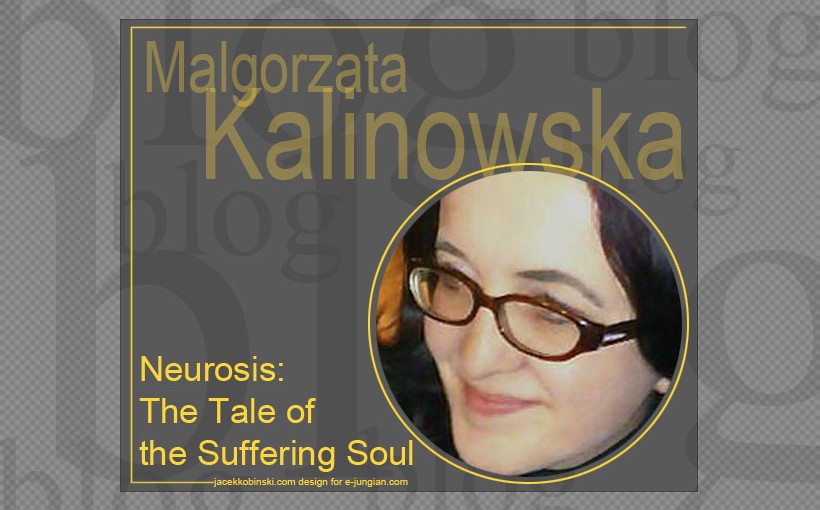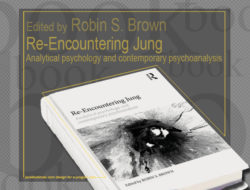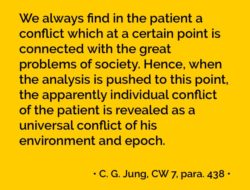When I was thinking about neurosis, I have come across two texts on Polish internet: The devilish evil of neurosis. Neurosis as an obstacle in normal human’s development and The concept of neurosis according to „Neurotic personality of our time” by Karen Horney. As I was reading them I thought: thanks God I do not suffer from anxiety symptoms. If I did, I mused with a black humour, I suspect I would never want to be treated again or to be healed after getting to know so many dehumanized things about myself.
If we make the language of psychopathology the main tool to describe psychological and emotional disturbances to which neurosis belongs, we may easily lose sight of the most important issue: the anxiety symptoms experienced by the people with so called „psychological disturbances” are grounded in true suffering. Carl Gustav Jung said once that the neurosis is always “a substitute for legitimate suffering” [1]. Neurotic symptoms then constitute the inhibition of psychological development, but at the same time they are the result of the defensive mechanisms and not of the conscious choice. Working with them, struggling to discover their meaning, is a conscious enterprise. It is a challenge (often an ethical one), which we need to face. Having those thoughts in mind we need to be very careful about how we use the language of psychopathology. We need to show to the patients his or her choice in a way that wouldn’t blame him or her for the emotional problems with not well understood psychopathological labels.
Andrew Samuels, the author of Psychopathology: Contemporary Jungian Perspectives, in his introduction pointed at several important objections regarding the application of the language of psychopathology:
- By the patient being labelled her or his individuality is lost. When aping a medical doctor, the soul doctor deprives himself of his best medicine – an intuitive, attentive connection to the internal world of the individual before him.
- Looking from the epistemological point of view the categories of psychopathology do not describe anything in the patient, for they are mere constructs. Rather, diagnostic categories imported unnecessarily from descriptive psychiatry primarily reveal the clinician’s state of mind.
- Psychopathology is sometimes regarded as “unpsychological” – an insult and affront to the psyche itself.
- Psychopathology fails to see through itself, fails to notice how relative its findings are – normality for women is different from normality for men; last century’s madness is not this century’s; Italian and British stereotypes of behaviour are different; no two psychiatrists can agree on a diagnosis.
- The use of psychopathology plays into the modern tendency to overvalue expertise and professionalism. The problem here is that the expert pathologist may be a poor therapist.
- Notwithstanding struggles to avoid moralizing, psychopathology cannot avoid contamination from ethical hierarchy, whether this is on a collective basis or contained in the analyst’s own prejudices and problems.
- There is a political angle to psychopathology in that segments of the population are marginalized. [2]
If we look at the psychopathology from this perspective, the question arises about the possibility of a different point of view. What could be the alternative that would allow us to both appreciate the range and scope of the symptoms and to keep the awareness of their relationship to the inner „legitimate suffering”? It might be even more important in the case of neurosis – this strange, irrational illness, which challenges all previous rational fundaments of everyday life and brings the experience, that somewhere there, inside of me, is something completely unknown.
James Hillman (Alchemical Psychology) places psychopathology in the centre of the psyche. He speaks about the natural need of the psyche to pathologize. According to him the psyche speaks in this way about its own suffering. This is expressed in the Greek etymology of the word: psyche-pathos-logos, : an understanding of the suffering of the soul. Hillman also notices, that the language we use to talk about psychopathology is becoming more and more one-sided and collective, whereas one-sidedness of the conscious attitude itself is the very source of neurosis. Is it possible – asks Hillman – that our psychological language itself became neurotic? And he continues in saying, that if I want to know what is the character of the neurosis, I need to look carefully into the language of its description, the style of the speech that is used for its treatment. Otherwise I myself will become neurotic in my attitude towards it – one-sided and identified with the collective social demands and determinants (“…since language is largely social” says Hillman, “the one-sidedness of my language reflects society’s collective language” [3] ).
If we treat the language of psychopathology as the starting point, the point of departure, and not as the point of destination, we pay respect to psyche. We are becoming open to search of the meaning of symptoms, its function in everyday life, the connection with inner suffering. But to be able to do it, first we need to collect the knowledge about the psychopathology of symptoms, and then to forget it all and ask ourselves this basic question: „What does it mean to me?” Then to our surprise the neurosis may cease to be the „Devilish evil” and start to be the tale about the suffering of the soul.
[1] Jung, C.G. (1938/1940). „Psychology and religion.” In: Psychology and Religion: West and East, CW 11, par. 129. Princeton: Princeton University Press.
[2] Samuels, A. (2002), Introduction, in: ed. A. Samuels, Psychopathology: Contemporary Jungian Perspectives. London and New York: Karnac Books, Kindle Edition.
[3] Hillman, J. (…). “The Therapeutic Value of Alchemical Language: A Heated Introduction, in: Alchemical Psychology, Putnam, Connecticut: Spring Publications, Inc., Kindle Edition.
Tags: Andrew Samuels, C. G. Jung, James Hillman, neurosis, psychoanalysis, psychopathology, suffering



































